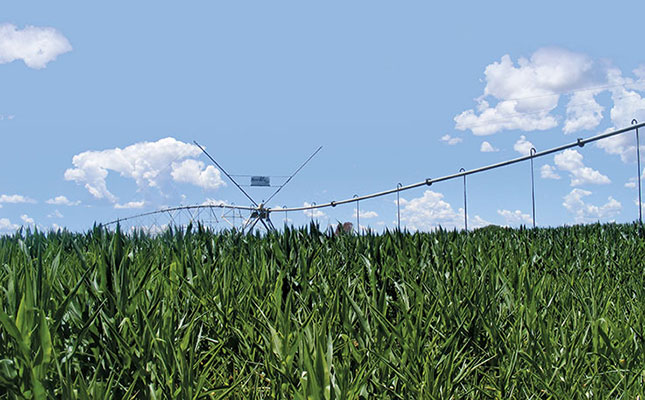
The outbreak of COVID-19 across the globe, and efforts to curb the spread, has created an unprecedented event that is causing severe disruption to industries and global value chains.
This is especially true with respect to agriculture, and there are questions and concerns around how the locking down of countries worldwide is impacting farmers and food supply.
South Africa’s agriculture and food sector value chain, which has been declared an essential during the national lockdown, remains in operation.
But the far-reaching impact of the novel coronavirus is bringing challenges to farmers as certain subsectors are restricted from trading, commodity prices have become volatile and imports and exports are constrained.
While the value of South Africa’s exportable agricultural commodities to countries around the world declined 8,8% in 2019 to $9,8 billion (about R165,7 billion), the picture was expected to improve somewhat in 2020.
“The favourable rains and weather conditions have helped farmers increase summer crop plantings, and this has bettered prospects for higher outputs,” explains Nico Groenewald, head of Agribusiness PBBSA Standard Bank.
“The lifting of the ban on meat products following the outbreak of foot-and-mouth disease has now also allowed South African meat products to move freely.”
The effect on exports
In South Africa, the agriculture sector is heavily dependent on global markets, and most of what is produced here goes to markets in Asia and Europe.
These markets, as indicated by Agbiz, account for 50% of South Africa’s agricultural exports in 2019, and this translates to a value of close to R142 billion.
That said, these are areas of the globe that have been particularly hard hit by the virus, and this is contributing to slowing demand as a result of impacting people’s ability to spend and disrupting supply chains as governments restrict movement.
“A potential slowdown in export demand would hurt an already pressed sector,” says Groenewald.
“The situation will then be exacerbated by a decline in the prices of exportable commodities. This could threaten the cash flow of farmers.”
Certain subsectors of the sector, such as the wine and alcoholic beverages and floriculture industries, have had restrictions placed on their trade. This has impacted the cash flow of these producers in the short term.
“The financial impact of the COVID-19 outbreak on farmers will differ across subsectors of the agricultural industry,” explains Groenewald.
“Some are battling to cope as a result of their debt overhang and stage of production. Farmers can generate enough revenue from exports to service their debt, but this depends on the ability of trading partners to maintain commerce amid the health pandemic.”
Groenewald adds that some agricultural product producers will find that their cash flow structure has been disrupted.
“These farmers will need to prepare soil and purchase inputs for the next production season, without necessarily receiving all income from the previous season.”
Agricultural productivity is inherently unpredictable. The industry is sensitive to the likes of weather patterns or biological processes, which, if unfavourable, can impact growing conditions and crop production.
“As a leading provider of financial services to the agriculture sector for more than 150 years, no one understands these challenges better than Standard Bank,” says Groenewald.
He adds that further uncertainties now exist around how the COVID-19 outbreak will impact supply and value chains.
“It is critical to produce crops of the right quality and quantity to achieve successful farming. While many of these factors are out of control of the sector value chain, continuous planning will be essential to mitigate risks and minimise disruptions, and to ensure operations are running at efficient levels.”
Managing a dynamic sector
Groenewald explains that Standard Bank’s Agribusiness teams are not only bankers, but “agricultural experts of this dynamic sector”.
“Behind every client’s relationship manager, who works to gain an understanding of the business’s needs, sits an entire team of agricultural advisors and economists. Their job is to prepare clients for tomorrow.”
This structure allows Standard Bank to take an integrated and holistic approach to facilitate and develop innovative and customised solutions to optimally address the client’s individual requirements.
This team proactively helps meet the needs of clients by facilitating access to a broad range of product and services, such as cash-flow planning and profit management.
Since agriculture is characterised by strong cyclical trends, Standard Bank offers structured advances and loans, which take the effects of these cycles into account. Interest rates and fees will be negotiated for the product/s required.
“These solutions allow for us to help farmers with managing currency risk and to continue to drive the growth of agribusiness in South Africa and throughout the rest of the continent,” Groenewald concludes.













